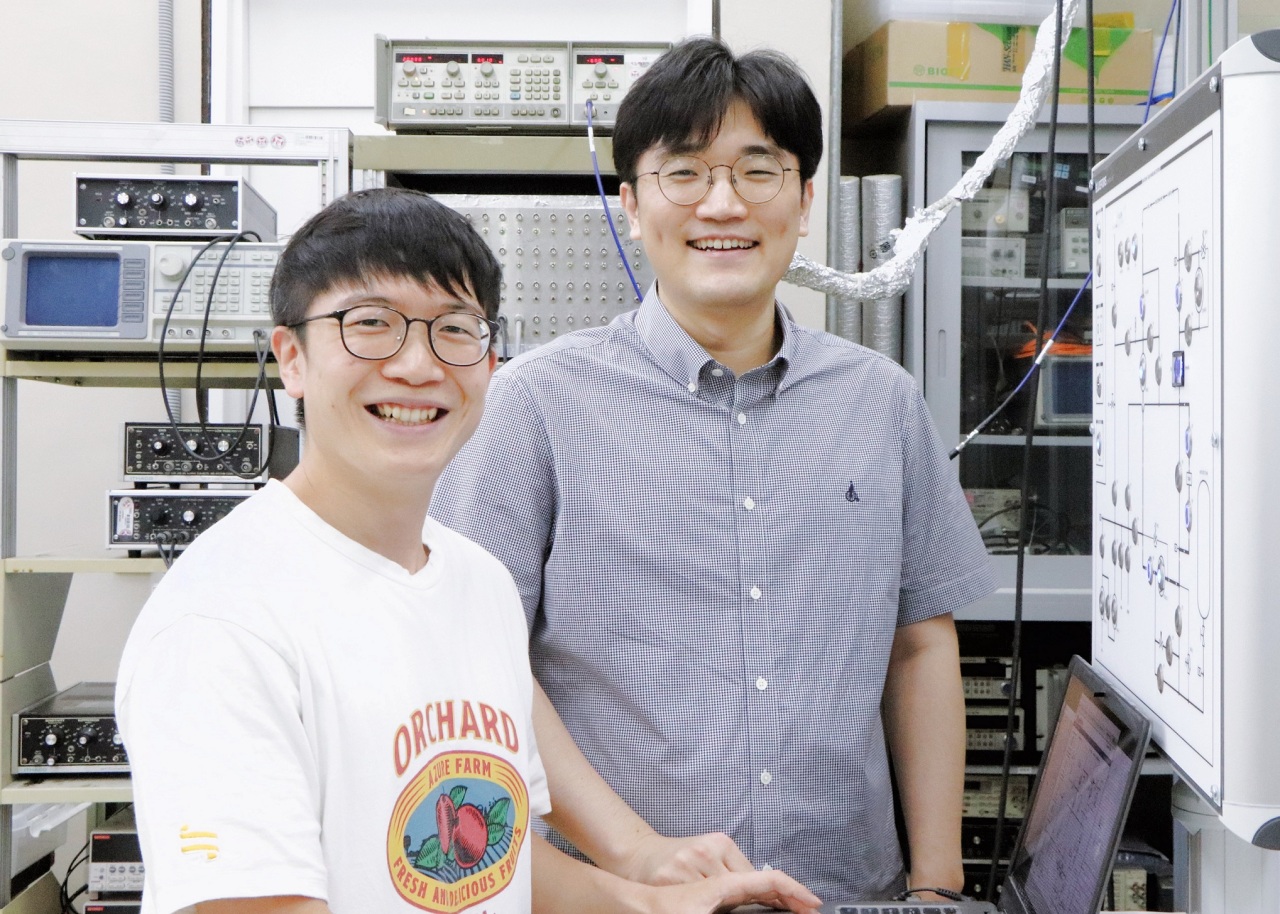Postech team develops ultrasensitive devices for microwave detection
By Jo He-rimPublished : Oct. 4, 2020 - 17:08

Samsung Electronics said Sunday that a South Korean research team it funded has developed sensors that can detect microwaves with the highest degree of sensitivity that is theoretically possible.
The research was led by professor Lee Gil-ho of Pohang University of Science and Technology and jointly conducted with Raytheon BBN Technologies, Harvard University and the Massachusetts Institute of Technology in the US, the Barcelona Institute of Science and Technology in Spain and the National Institute for Materials Science in Japan.
The research findings drew attention as an enabling technology for commercializing the next generation of technologies, including quantum computers, and were published in the prominent international academic journal Nature on Thursday, according to Samsung.
Microwaves are used in a wide range of scientific and technological fields, including mobile communications, radar and astronomy.
According to Samsung, the sensor can detect microwaves at the extremely high sensitivity of 1 trillionth of a watt, breaking the previous limit of 1 billionth of a watt.
“This study is significant in that it has established a scalable technology to enable the next-generation quantum devices,” Lee said.
The Samsung Science and Technology Foundation has been funding Lee’s research team since June 2017, the company said. The foundation was established in 2013 to support the development of basic science, materials engineering and information technologies.
As of this year, a total of 1.5 trillion won ($1.28 billion) has been endowed for funding for 10 years, and it has so far provided 772.9 billion won for 603 research projects from universities and public research institutes in Korea, according to the company.
By Jo He-rim (herim@heraldcorp.com)







![[KH Explains] Hyundai's full hybrid edge to pay off amid slow transition to pure EVs](http://res.heraldm.com/phpwas/restmb_idxmake.php?idx=644&simg=/content/image/2024/04/18/20240418050645_0.jpg&u=20240419100350)







![[From the Scene] Monks, Buddhists hail return of remains of Buddhas](http://res.heraldm.com/phpwas/restmb_idxmake.php?idx=652&simg=/content/image/2024/04/19/20240419050617_0.jpg&u=20240419175937)

![[KH Explains] Hyundai's full hybrid edge to pay off amid slow transition to pure EVs](http://res.heraldm.com/phpwas/restmb_idxmake.php?idx=652&simg=/content/image/2024/04/18/20240418050645_0.jpg&u=20240419100350)

![[Today’s K-pop] Illit drops debut single remix](http://res.heraldm.com/phpwas/restmb_idxmake.php?idx=642&simg=/content/image/2024/04/19/20240419050612_0.jpg&u=)